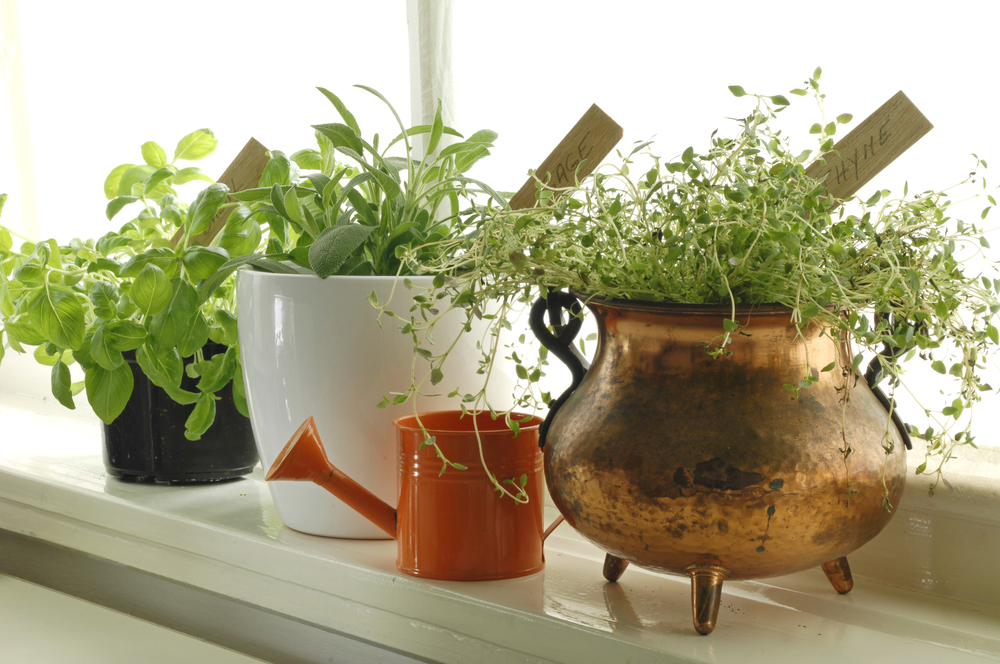If you love to cook, you know the difference fresh
herbs can make. Dried herbs from a bottle may work
in a pinch, but world-class chefs understand the
value of freshness, and they go out of their way to
buy their herbs fresh each morning.
With so much interest in fresh food and farm-to-table
dining, it just makes sense that so many home cooks
are now growing their home herbs at home, turning their
windowsills and tabletops into creative gardens. If you
would like to join the herb growing revolution, now is
the perfect time. You do not have to be a master gardener,
or even have a green thumb, to grow these easy herbs.
Basil
Basil is one of the easiest herbs to grow, and it is a
frequent sight in outdoor gardens. If you choose to grow
your basil indoors, be sure to choose the smaller globular
type of herb, since these smaller varieties are better suited
to indoor growing. Larger varieties of basil will quickly
overgrow your other herbs and create a real space problem in
your indoor herb garden.
For best results, basil should be grown in well-ventilated
roomy containers. The tiny pots that come with many herb
garden kits are generally too small for this popular herb.
The soil should be rich in nutrients, and adding a bit of
fertilizer is a great way to give your plants the head start
they need.
Cilantro
Cilantro is easy to grow, but it is also a relatively short-lived
plant. If you want a good supply of cilantro for your cooking,
you need to start two or three cuttings at a time.
Since cilantro only lasts for about two or three weeks, frequent
starting is the key to success. By the time one plant is depleted,
you will have a brand new harvest ready to go.
Oregano
Oregano is one of the most aromatic herbs, and one of the most
versatile. You do not have to be Italian to enjoy the aroma of
oregano, and you do not have to be a master gardener to grow it.
Oregano does best in a container with plenty of drainage, and be
careful not to over water. The planting medium should consist of
equal parts of peat moss, sand, perlite and potting soil, so you
can enjoy a rich supply of fresh oregano whenever you need it for
your favorite recipes.
Parsley
Parsley is easy to grow from cuttings, but it is also great to grow
from seed. Parsley seeds are quite inexpensive to buy, so you can
enjoy an almost endless supply of fresh herbs for your favorite dishes.
If you do choose to grow fresh parsley from seed, be sure to soak those
seeds in warm water before planting. The warm water soaking will crack
the seed coat and make it easier for the parsley to sprout.
Sage
Sage is another highly versatile herb, and a favorite with cooks around
the world. This aromatic herb is generally easy to grow, but it does do
best in medium to full sunlight, so choose your planting spot accordingly.
Sage is a perfect candidate for a windowsill herb garden, especially if the
window in question gets plenty of direct sunlight.
Sage also needs very little water, so be careful not to apply too much
moisture. You should not water your sage until the leaves look somewhat
wilted; they will spring back to life as soon as they get a drink.
If you love to cook, you will love growing your own fresh aromatic herbs.
Once you taste the difference fresh herbs can make, you may never buy a
freeze-dried bottle at the supermarket again.
